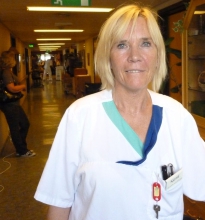Austerity is bad for everyone’s health: cuts in nurses and training hurt patients

Study: Nurse staffing and education and hospital mortality in nine European countries
Mortality rates after common surgical procedures decrease dramatically if patients receive treatment in hospitals where nurses have managable workloads and hold bachelor's degrees, according to a study published in The Lancet.A team of researchers, from the University of Pennsylvania School of Nursing in Philadelphia and Catholic University of Leuven in Belgium, has shown - once again - that austerity cuts and changes to make hospital costs “efficient” are bad for patients, whereas nurse training is good for patients. Studying hospitals in nine European countries, the team found that an increase of one patient in the workload of a nurse increased a patient’s risk of dying after common surgery by as much as 7 %. But nurse education greatly benefits patients: when the proportion of trained nurses is higher by 10 %, a patient’s risk of dying falls by 7 %.
The researchers conclude that in a hospital where 60 % of nurses are well trained and each nurse has a workload of 6 patients, a patient’s risk of dying is 30 % lower than in a hospital where only 30 % of nurses are well trained and each nurse has a workload of 8 patients. Clearly, nurse-patient ratios are not only about nurses’ work; they are about patient safety and everyone’s health.
See the 2014 Lancet medical journal report here
Source: http://www.fiercehealthcare.com/story/nurse-caseload-education-impacts-m...

